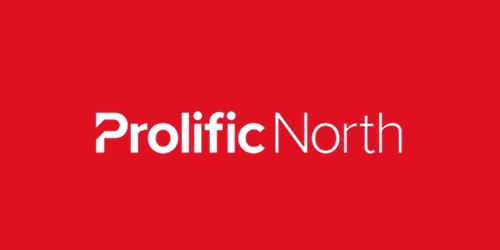blog:
Have you got your brand story straight?

Companies need to be clear on their brand story, to define their place in the market and strike a connection with their target audience.
Gillian Dannenberg, Senior Research & Strategy Marketing Manager explores the importance of brand storytelling in life sciences.
What is brand storytelling and why is it important?
The life sciences market is crowded; we are all bombarded with so much information every day that brands need to find a way to cut through the noise. It’s simply not enough to have a great product feature or a great customer testimonial, and that’s why brand storytelling is so important.
A good story makes a brand more interesting. It adds value, going beyond just describing the nuts and bolts of what a business does. It turns the transactional into the emotional.
A brand story also functions as a north-star narrative that guides and informs all brand activity and communications, ensuring it remains consistent and compelling.
Unfortunately, a lot of business narratives tend to be self-congratulating and fail to strike an emotional chord with intended audiences. This is where a good story can play a role. It seeks to identify an issue relevant to its listeners and ultimately provide a resolution to it, placing a brand right at the heart of that resolution.
That all sounds lovely, but can brand storytelling help achieve commercial goals?
Put simply, yes. According to a recent article in Forbes, “Businesses can no longer afford to be faceless entities.” Indeed, many successful brands inside and outside of the life sciences industry have used brand storytelling as a critical tool to help drive their commercial success.
The potential benefits of brand storytelling include:
- Improved audience engagement
- Competitor differentiation
- Enhanced understanding of the value you bring
- Increased brand awareness which over time, streamlines your marketing requirements. (If people already know you and what you stand for, this shortens the sales funnel journey.)
- Helping to attract and retain staff, as well as attracting investors
- Adds value to your brand
The potential result? An improved sales pipeline and increased revenue margins.
The six-step story formula
So, what’s the secret formula to creating an impactful, authentic brand story?
The same formula that created The Jungle Book, Star Wars, ET, and any other film or book you can think of follows this simple 6-step formula:
- There is a protagonist or a hero
- They are on a mission to achieve something
- There is a villain or obstacle, causing a problem
- Along comes a helper
- Who takes you on a journey filled with tension and drama
- Finally, a resolution is reached
The protagonist represents the person your brand exists to serve and the problem your brand helps them solve – they are your customer.
The mission represents what the protagonist is looking to achieve, and the obstacle/villain is of course the challenges that they are met with along the way. To bring this to life a bit more, the protagonist could be a pharmaceutical company on a mission to get life-saving drugs to patients, but first, it needs to overcome an obstacle – capacity, and capability challenges.
And the helper? You guessed it, that’s YOU. And instead of blindly promoting your services and qualities, we use the story formula to position you as a guide that illuminates the path ahead for the protagonist. By taking this approach we’re able to frame your services and offering in terms of how it will assist your target audience and how it will help them to overcome their challenges.
This approach not only allows you to speak to the struggles and motivators of your target audience, but it means that you’re able to communicate your offer in a way that engages them on an emotional and memorable level. And this is important because according to Forbes, information communicated by storytelling can be up to 22 times more memorable than simple facts.
The moral of this story? Sell a feeling, not just a product
Companies that use brand storytelling are more likely to establish an emotional connection with their target audience, which in turn enhances brand awareness and recall, creates clearer differentiation, and drives trust. All of which can positively impact sales…
If you have questions about our brand storytelling services, we’d love to chat! Contact us today…
Related news, insight and opinion





